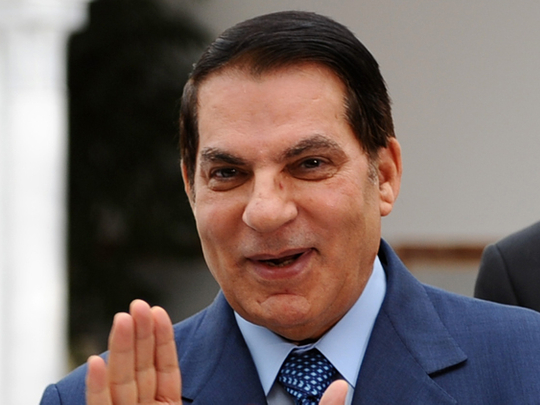
Since the Tunisian uprising, which ended in the ouster of president Zine Al Abidine Bin Ali, France has been pursuing a policy of dealing with the sort of political change sweeping across the Arab world that can be described as anything but ethical. Indeed, while the policies of other western countries are no less hypocritical, France's approach has been irritating.
Recently, French Foreign Minister Michèle Alliot-Marie was forced to resign after it emerged that while on a New Year holiday to Tunisia she and her family accepted a flight from a Tunisian businessman connected with the Bin Ali family. To add insult to injury, Alliot-Marie suggested France offer Tunisia its "savoir faire" in controlling protests.
French Prime Minister François Fillon, confirmed recently also that his government had authorised the delivery of tear gas grenades to Tunisia on January 12, the day before the government was swept from power.
France's approach towards the uprising in Libya is not very different. It took several days for the government to condemn the brutal crackdown on protesters.
Most analysts refer to Muammar Gaddafi's December 2007 visit to Paris to explain President Nicolas Sarkozy's pathetic policy on Libya. Sarkozy was criticised for hosting the Libyan leader on the grounds of his poor human rights record.
"Colonel Gaddafi must understand that our country is not a doormat on which a leader, terrorist or not, can come to wipe the blood of his crimes off his feet," Rama Yade, then French secretary of state for human rights, said in an interview with the newspaper Le Parisien.
Sarkozy was blunt in justifying his decision. He hinted that the visit helped cut $14.7 billion (Dh53.94 billion) in deals for arms and nuclear reactors with Libya and, hence, saved thousands of jobs in the country.
It was suggested that the visit was in fact Gaddafi's way to bribe the French president to help bring Libya in from the cold. The guest list for a dinner in Gaddafi's honour at the presidential Elysee Palace was indicative.
Money matters
Most of the guests were French business leaders — from Airbus, Dassault, Total and other big companies. After the dinner, two Libyan airlines confirmed orders had been signed to buy 21 Airbus planes worth $4.4 billion. The two sides also signed an accord to develop civilian nuclear reactors.
While Gaddafi has not been blamed for using every means possible to break his isolation and reintegrate his country in the international community, Sarkozy has been roundly criticised for abandoning his pledges "to defend the world's oppressed" and for betraying France's role as the cradle of human rights.
When Sarkozy began his tenure as president in May 2007, many hoped that he would break with the policies of past French leaders in terms of mollycoddling dictators. Initially, Sarkozy showed promise. He made Darfur a top diplomatic priority and appointed Bernard Kouchner, the outspoken former leader of Doctors without Borders, as minister of foreign affairs.
Foreign policy attitudes have, however, proved the opposite. Sarkozy is not apologetic. His message is clear: "In diplomacy, values matter, but French business interests matter perhaps even more".
Gaddafi was pleased to hear that from Sarkozy when he first met him in July 2007 in Tripoli.
Indeed, Gaddafi made enough concessions. In 2003, he decided to dismantle his nuclear arms programme. The same year he paid $2.7 billion to families of victims of the 1988 Pan Am bombing over Lockerbie, Scotland, then agreed to pay $170 million to the families of the 170 victims of the 1989 bombing of a French UTA passenger jet.
In July 2007, Gaddafi ordered the release of five Bulgarian nurses and a Palestinian doctor who had spent eight years in Libyan jails after being convicted of deliberately infecting 400 children with Aids. The six were freed after mediation by Cecilia Sarkozy, the then wife of Sarkozy, who set the stage for his visit to Libya.
This is what Sarkozy would call western pragmatism in dealing with Arab politics.
Dr Marwan Al Kabalan is director of the Damascus Centre for Economic and Political Studies.










